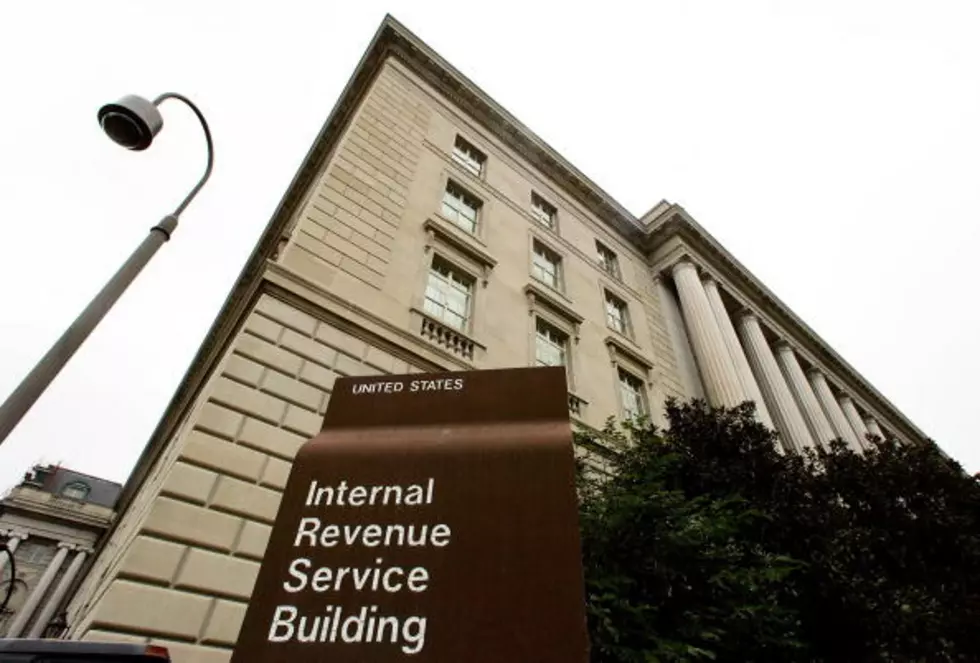
Obama Says He Won’t Tolerate Political Bias at IRS
When members of Congress repeatedly raised concerns with the Internal Revenue Service about complaints that Tea Party groups were being harassed last year, a deputy IRS commissioner took the lead in assuring lawmakers that the additional scrutiny was a legitimate part of the screening process.
That deputy commissioner was Steven T. Miller, who is now the acting head of the agency.
In several letters to members of Congress, Miller went into painstaking detail about how applications for tax-exempt status were screened. But he never mentioned that conservative groups were being targeted, a fact that was known to people he oversaw, according to an upcoming report by the agency's inspector general.
In one 10-page response, Miller said a revenue agent uses "sound reasoning based on tax law training" to determine which applications for tax-exempt status need additional scrutiny.
"We are going to need to find out how much he knew," said Rep. Dave Camp, R- Mich., chairman of the House Ways and Means Committee. Camp is holding a hearing on the issue Friday and Miller is scheduled to testify.
Camp and other members of his committee sent at least four inquiries to the IRS, starting in June 2011. Utah Sen. Orrin Hatch, the top Republican on the Senate Finance Committee, sent three inquiries. And Rep. Darrell Issa, R-Calif., chairman of the House oversight committee, sent at least one.
None of the responses they received from the IRS acknowledged that conservative groups had ever been targeted.
"They really failed to disclose to us what they were up to, even though we obviously had a concern that they were targeting taxpayers for their political beliefs," Camp said. "Given all of that attention, they had an obligation and duty to come forward with this information."
The IRS did not respond Monday to requests for comment.
The agency apologized Friday for what it acknowledged was "inappropriate" targeting of conservative political groups during the 2012 election to see if they were violating their tax-exempt status. In some cases, the IRS acknowledged, agents inappropriately asked for lists of donors.
The agency blamed low-level employees in a Cincinnati office, saying no high-level officials were aware.
But on June 29, 2011, Lois G. Lerner, who heads the IRS division that oversees tax-exempt organizations, learned at a meeting that groups were being targeted, according to a draft of the report by the Treasury inspector general for tax administration.
At the meeting, Lerner was told that groups with "Tea Party," `'Patriot" or "9/12 Project" in their names were being flagged for additional and often burdensome scrutiny, the report says. Lerner instructed agents to change the criteria for flagging groups "immediately."
However, when Lerner responded to inquiries from the House oversight committee, she didn't mention the fact that Tea Party groups had ever been targeted. Her responses included 45-page letters to Rep. Darrell Issa, R-Calif., who chairs the committee, and Rep. Jim Jordan, R-Ohio, who chairs a subcommittee.
Lerner also met twice with staff from the House Ways and Means oversight subcommittee to discuss the issue, in March and in May 2012, according to a timeline constructed by committee staff. She didn't mention at either meeting that conservative groups had been targeted, according to the timeline.
At the IRS, Lerner reports to Joseph Grant, commissioner of the Tax Exempt and Government Entities Division. Grant responded to two congressional inquiries, both without mentioning the targeting of conservative groups.
Grant reported to Miller, when Miller was the deputy commissioner.
Miller became acting commissioner in November, after Commissioner Douglas Shulman completed his five-year term. Shulman had been appointed by President George W. Bush.
On Monday, President Barack Obama said he first learned about the issue from new reports on Friday. White House spokesman Jay Carney said the White House counsel's office was alerted the week of April 22 that the inspector general was finishing a report concerning the IRS office in Cincinnati. But, he said, the counsel's office did not get the report and the president did not learn the focus until Friday.
"If, in fact, IRS personnel engaged in the kind of practices that had been reported on and were intentionally targeting conservative groups, then that's outrageous and there's no place for it," Obama said Monday at a press conference. "And they have to be held fully accountable, because the IRS as an independent agency requires absolute integrity, and people have to have confidence that they're applying it in a non-partisan way, applying the laws in a non-partisan way."
There has been a surge of politically active groups claiming tax-exempt status in recent elections -- conservative and liberal. These groups claim tax-exempt status under section 501 (c) (4) of the federal tax code, which is for social welfare groups. Unlike other charitable groups, these organizations are allowed to participate in political activities, but their primary activity must be social welfare.
That determination is up to the IRS.
In all, about 300 groups were singled out for additional review, the IRS said. Of those, about a quarter were singled out because they had "tea party" or "patriot" somewhere in their applications.
About 150 of the cases have been closed and no group had its tax-exempt status revoked, though some withdrew their applications, Lerner said Friday.
(Copyright 2013 by The Associated Press. All Rights Reserved.)
More From New Jersey 101.5 FM






![Helping NJ Residents in Flood Zones [AUDIO]](http://townsquare.media/site/385/files/2014/01/1702901141.jpg?w=980&q=75)
![Is a Gas Tax Hike in NJ’s Future? [AUDIO]](http://townsquare.media/site/385/files/2012/07/GasPump.jpg?w=980&q=75)
![Christie Reacts to Bridgegate Testimony [POLL/AUDIO]](http://townsquare.media/site/385/files/2014/05/drewniak-hearing-1B.jpg?w=980&q=75)
